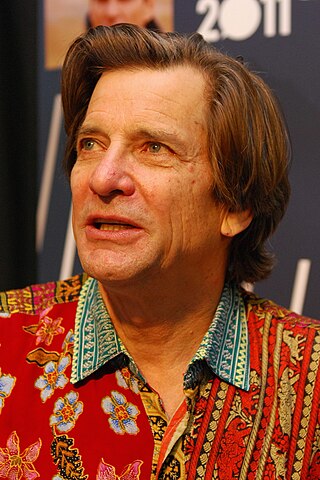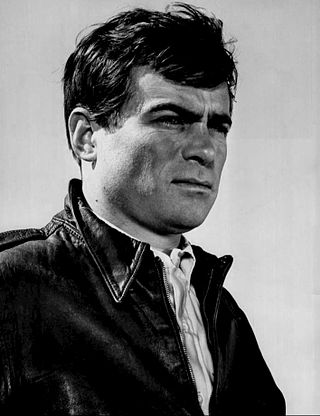This article needs additional citations for verification .(December 2008) |
Shadow Force is a 1992 American action film directed by
This article needs additional citations for verification .(December 2008) |
Shadow Force is a 1992 American action film directed by
In the fictional town of Norman, close to San Antonio, the local police is composed of professional assassins. With one exception, the police chief down to the dispatcher are all on the payroll of a local racketeer who makes use of these paid killers to dispose of zealous law enforcement officials opposed to his operations. When the last remaining honorable member of the force (Glenn Corbett) is killed, his brother-in-law (Dirk Benedict), a homicide detective from an unidentified city in Kansas begins an investigation of his own.

Dirk Benedict is an American film, television and stage actor, and author. He is best known for playing the characters Lieutenant Starbuck in the original Battlestar Galactica film and television series and Templeton "Faceman" Peck in The A-Team television series. He is the author of Confessions of a Kamikaze Cowboy and And Then We Went Fishing.

The police are a constituted body of persons empowered by a state, with the aim to enforce the law, protect public order, and the public itself. This commonly includes ensuring the safety, health, and possessions of citizens, and to prevent crime and civil disorder. Their lawful powers encompass arrest and the use of force legitimized by the state via the monopoly on violence. The term is most commonly associated with the police forces of a sovereign state that are authorized to exercise the police power of that state within a defined legal or territorial area of responsibility. Police forces are often defined as being separate from the military and other organizations involved in the defense of the state against foreign aggressors; however, gendarmerie are military units charged with civil policing. Police forces are usually public sector services, funded through taxes.
A constable is a person holding a particular office, most commonly in criminal law enforcement. The office of constable can vary significantly in different jurisdictions. A constable is commonly the rank of an officer within the police. Other people may be granted powers of a constable without holding this title.
The police procedural, police show, or police crime drama is a subgenre of procedural drama and detective fiction that emphasizes the investigative procedure of police officers, police detectives, or law enforcement agencies as the protagonists, as contrasted with other genres that focus on non-police investigators such as private investigators.
The Criminal Investigation Department (CID) is the branch of a police force to which most plainclothes detectives belong in the United Kingdom and many Commonwealth nations. A force's CID is distinct from its Special Branch. The name derives from the CID of the Metropolitan Police, formed on 8 April 1878 by C. E. Howard Vincent as a re-formation of its Detective Branch. British colonial police forces all over the world adopted the terminology developed in the UK in the 19th and early 20th centuries, and later the police forces of those countries often retained it after independence. English-language media often use "CID" as a translation to refer to comparable organisations in other countries.

Glenn Corbett was an American actor in movies and television for more than 30 years. He came to national attention in the early 1960s, when he replaced George Maharis in the cast of the popular CBS adventure drama Route 66. He followed this with roles in high-profile films and television shows, including a guest role in the original Star Trek series, the daytime soap opera The Doctors, the primetime soap Dallas, and movies such as Chisum with John Wayne, as one of Jimmy Stewart's sons in Shenandoah, and the World War II epic Midway.
Inspector, also police inspector or inspector of police, is a police rank. The rank or position varies in seniority depending on the organization that uses it.

The Metropolitan Police Department of the District of Columbia (MPDC), more commonly known as the Metropolitan Police Department (MPD), the DC Police, and, colloquially, the DCPD, is the primary law enforcement agency for the District of Columbia, in the United States. With approximately 3,400 officers and 600 civilian staff, it is the sixth-largest municipal police department in the United States. The department serves an area of 68 square miles (180 km2) and a population of over 700,000 people. Established on August 6, 1861, the MPD is one of the oldest police departments in the United States. The MPD headquarters is at the Henry J. Daly Building, located on Indiana Avenue in Judiciary Square across the street from the District of Columbia Court of Appeals and the Superior Court of the District of Columbia. The department's mission is to "safeguard the District of Columbia and protect its residents and visitors with the highest regard for the sanctity of human life". The MPD's regulations are compiled in title 5, chapter 1 of the District of Columbia Code.

The Massachusetts Bay Transportation Authority Police is a police force which has primary jurisdiction on Massachusetts Bay Transportation Authority (MBTA) property and vehicles in each of the 177 cities and towns within the MBTA. The department has grown to an authorized strength of 266 officers and 10 civilians. The majority of the MBTA Police Department's efforts are focused on patrol in Boston and surrounding communities, particularly around heavy rail The department patrols and protects the 5 subway lines to include the Silver Line, 13 commuter rail lines, 4 passenger ferry routes, 181 bus routes and The Ride paratransit system in Massachusetts communities.

The Hampshire and Isle of Wight Constabulary is the territorial police force responsible for policing the counties of Hampshire and the Isle of Wight in South East England.

North Yorkshire Police is the territorial police force covering the unitary authorities of North Yorkshire and the City of York in northern England. As of April 2024 the force had a strength of 1,665 police officers, 127 special constables, 192 PCSOs and 1,072 police staff. Of the 43 territorial police forces in England and Wales, the force has the 3rd largest geographic area of responsibility whilst being the 15th smallest force in terms of police officer numbers.

The Jacksonville Sheriff's Office (JSO) is a joint city-county law enforcement agency, which has primary responsibility for law enforcement, investigation, and corrections within the consolidated City of Jacksonville and Duval County, Florida, United States. Duval County includes the incorporated cities of Jacksonville, Atlantic Beach, Baldwin, Jacksonville Beach, and Neptune Beach; the beach cities have their own police departments as well.

Dalziel and Pascoe is a British television crime drama based on the mystery novels of the same name, written by Reginald Hill. The series was first broadcast on 16 March 1996, with Warren Clarke being cast as Dalziel and Colin Buchanan being cast as Pascoe. The series is primarily set in the fictional town of Wetherton in Yorkshire, and "follows the work of two detectives who are thrown together as partners. Complete opposites. Different backgrounds, different beliefs, different styles. They get on each other's nerves. They are continually embarrassed by each other. But their differences make them a stunningly brilliant crime-solving team."

Softly, Softly: Task Force is a police procedural series which ran on BBC 1 from 1969 to 1976. It was a revamp of Softly, Softly, itself a spin-off from Z-Cars. The change was made partly to coincide with the coming of colour broadcasting to the BBC's main channel BBC1. The programme was due to be called simply Task Force, but reluctant to sacrifice a much-loved brand the BBC compromised this so it became Softly, Softly: Task Force.

Cyrus Willard Kendall was an American film actor. He appeared in more than 140 films between 1935 and 1950. Kendall's heavy-set, square-jawed appearance and deep voice were perfect for wiseguy roles such as policemen and police chiefs, wardens, military officers, bartenders, reporters, and mobsters.

The Midnight Man is a 1919 American film serial directed by James W. Horne. It is now considered to be a lost film.

The Detective Bureau is one of 20 bureaus that constitute the New York City Police Department and is headed by the three-star Chief of Detectives. The Detective Squad was formed in 1857 with the Detective Bureau later formed in 1882.

The Shadow is a 1933 British mystery film directed by George A. Cooper and starring Henry Kendall, Elizabeth Allan and Felix Aylmer.

The Police of Russia is the national law-enforcement agency in Russia, operating under the Ministry of Internal Affairs from September 8, [O.S. 20] 1802. It was established June 7, [O.S. 18] 1718 by decree from Peter the Great and in 2011, replacing the Militsiya, the former police service.
The 1960 New Year Honours in New Zealand were appointments by Elizabeth II on the advice of the New Zealand government to various orders and honours to reward and highlight good works by New Zealanders. The awards celebrated the passing of 1959 and the beginning of 1960, and were announced on 1 January 1960.